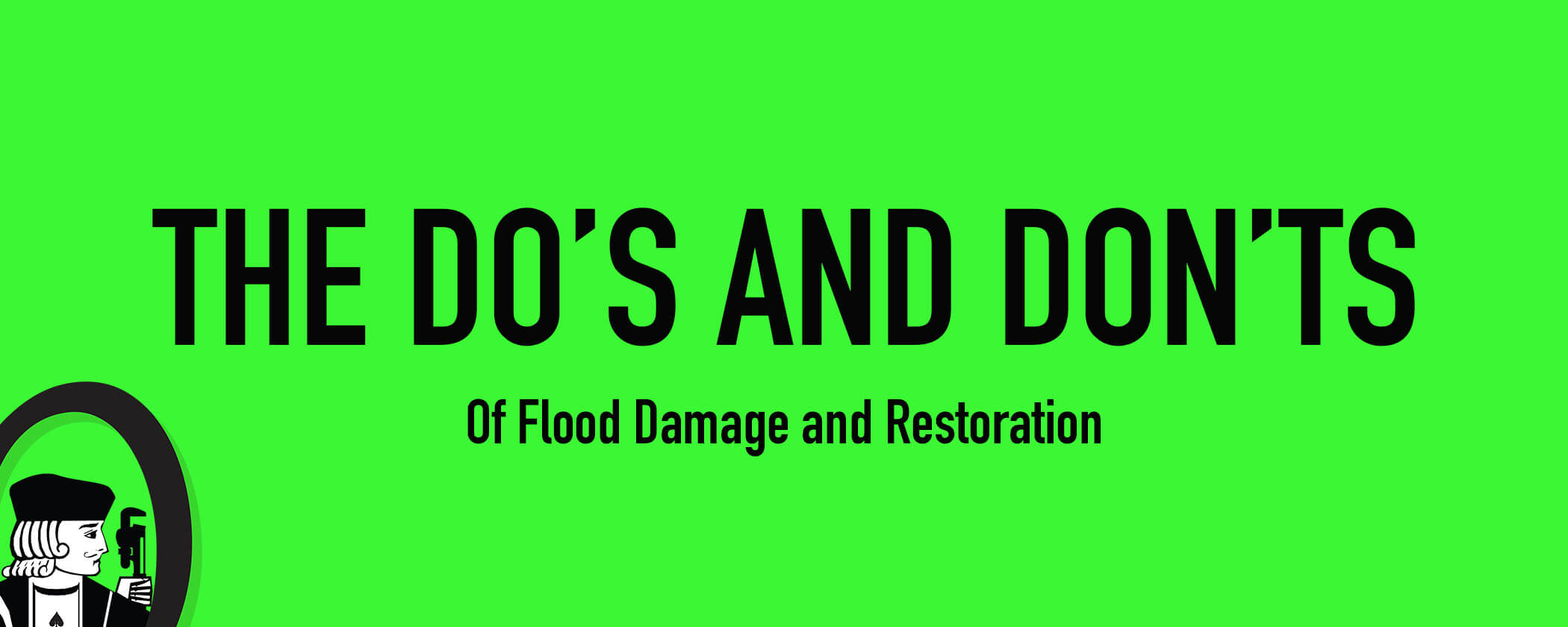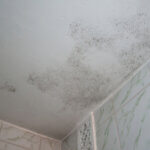If you experience property flooding, there’s a right way and a wrong way to go about restoring your home or business.
Between 2010 and 2019, climate disasters cost American property owners billions of dollars, according to the NOAA. Water damage can come from either natural or man-made sources.
For example, your property may experience water damage due to a hurricane, severe flooding, or a storm. Alternatively, your property may face damage due to a sewage backup, pipe leak, or pipe malfunction.
These scenarios are just a few of the ways that your property can incur water damage. No matter how the flooding happens, however, it’s important to have severe water damage emergencies addressed by a professional.
If you find yourself saying, “My home experienced flood damage!” you may wonder what to do next. To learn the do’s and don’ts of flood damage restoration, keep reading.
Assessing Property Flood Damage
What you do immediately after flood damage is critical. It’s important to take the right steps to ensure the best outcome of flooding remediation.
Flood recovery is a sensitive task, as is water damage of any kind. However, sewer backups and flood-related damage require special attention. For these kinds of flood incidents, it’s essential to seek help from a trained professional.
Nevertheless, there are critical steps that you can take after flooding. These steps will help you to lessen the possibility of permanent damage after a flooding incident.
Overall, there are three kinds of water damage—clear, gray, and black water damage. Clear water typically does not pose a threat to your health. You may experience this kind of flood damage when a sink overflows or after a pipe burst.
However, gray water more than likely contains contaminants that are threatening to your health. You might face gray water damage from a dishwater leak.
Meanwhile, black water damage is indisputably dirty water. This kind of water is unquestionably toxic and bad for your health. A sewage backup is a good example of black water damage.
Whether you’re facing clear, gray, or black water damage, all water can cause severe harm to your property. For this reason, it’s important to manage leaks the right way so that they don’t compromise your property or your health.
What to Do After Flood Damage
It’s important to know how to clean up after flood damage. Historically, property owners in nearly every county of the United States have had to manage flood damage at some point, according to a report issued by FEMA. If you find yourself in the middle of a waterlogged mess, you’re not alone.
If your home is subject to flooding from either a natural or man-made disaster, there are a few steps that you should follow. Firstly, stay aware of rodents, snakes, and insects that may come into your home during a flood.
Also, give your property a once over for damaged power lines, foundation cracks, floor slants, or shifted stairwells. You should also ensure that you don’t smell any leaking gas.
Next, check your water supply. You need clean water for both drinking and cleaning up the water damage.
Before you start cleaning, however, open the windows of your property to let in air. Also, check for holes around your roof or your walls. If you find any breaches, you can cover them up temporarily with a tarp until you can have them repaired.
When you clean, make sure that you wear protective clothing such as boots and gloves. Also, wash your hands regularly.
If you have any water-soaked floor or wall coverings, it’s best to discard them. These items can easily harbor mold.
Furthermore, you need to remove any drywall or finished ceiling material that comes in contact with floodwater. Likewise, you’ll also need to dispose of anything that’s edible.
If items such as food, beverages, or medication come in contact with floodwater, throw them away. You should discard all potentially contaminated food items, including canned goods.
What Not to Do After Flood Damage
If your property experiences minor damage, you might try to do the cleanup on your own. However, it’s always wiser and safer to hire an expert to recover from extensive flooding.
If you’re going to clean up the flooding yourself, never use a vacuum or wet/dry vac to remediate damage after a large flood. Electrical items can cause a shock after flooding.
Furthermore, you shouldn’t use any electrical item until you know that your property is safe. You shouldn’t even use a fan to speed up the drying process using a potentially compromised electrical source. Until you know your property is safe, you’ll need to use an alternative power supply, such as a generator.
Also, don’t try to use newspapers to sop up the mess. The ink from a newspaper will transfer to surfaces easily.
Furthermore, try not to walk on wet surfaces. You can minimize safety hazards and prevent further damage by traversing these areas as little as possible.
You should also leave your HVAC system off if floodwater comes in contact with your ventilation system. If you turn it on, you could spread any contamination. Finally, unless a qualified restoration expert tells you otherwise, don’t adjust indoor temperatures.
By now, you’ve probably worked up quite a sweat. Even so, it’s important not to use any personal hygiene products such as a toothbrush or towel that’s been potentially exposed to floodwater contaminants.
Make Your Property Safe With Expert Flood Damage Restoration
If you’ve experienced flooding, it’s in your best interest to hire a professional service for the restoration. An expert remediation company knows all the proper steps to take to protect your property—and your health.
It’s also important to get help as soon as possible. Water damage can seep further into walls, furniture, and appliances left unattended.
A water restoration expert is a dedicated professional with experience cleaning, repairing, and restoring properties quickly and efficiently. They can save your property from further damage and get the job done fast.
Furthermore, they can ensure that your property doesn’t support the growth of mold after flooding. Toxic mold is dangerous for your health. In some cases, it can prove fatal.
Water remediation experts have special training in removing mold and mildew from properties. They use professional chemicals that are made just for the job. With the right skills and tools, they will ensure that toxic mold doesn’t thrive on your property after a flood.
Trust Us to Restore Your Property to Pristine Condition
Now you know more about the do’s and don’ts of flood damage restoration. What you need now is a water remediation expert that’s well-qualified for the job.
For more than 30 years, Jolly Cleaning & Restoration has helped residential and commercial property owners recover from flood and water damage 24 hours a day, seven days a week. We respond to many types of incidents, including flooding, sewage backups, sump pump failure, basement flood damage, and other unforeseen events.
We can also assist you in building a plan for mold remediation. Our technicians are trained in mold removal. We know what it takes to eliminate dangerous toxic mold.
Contact a Jolly Cleaning & Restoration representative today at (859) 551-0813 or connect with us online to find out more about how we can help you with your restoration or cleaning needs.




